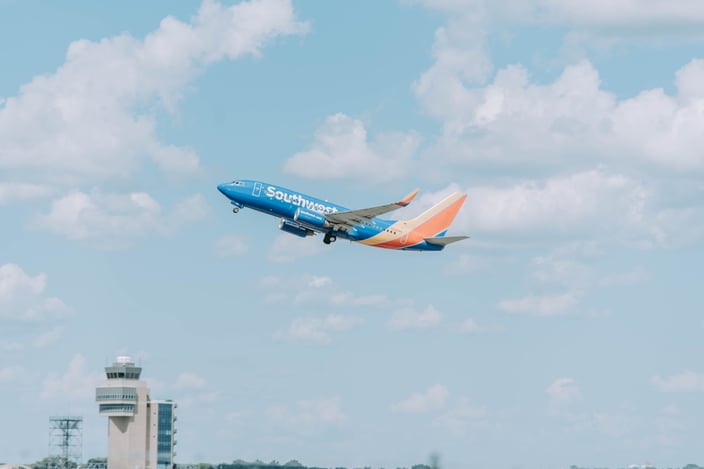Despite the recent declines in airline ticket sales during the pandemic, reports of airline fraud continue to rise.
Fraud is sweeping across every sector of our economy and the airline industry is no exception. According to RSA Security and Juniper, the airline industry is one of the most affected by online fraud, accounting for 46% of fraudulent transactions. With an estimated $1 billion in annual losses in the United States alone, airline fraud is a major concern. The cost of airline fraud forces airlines to raise their booking rates which hurts us all.
The landscape of digital payment solutions is constantly evolving and cybercriminals are finding new ways to exploit the system. The good news is, with the help of machine learning and automated fraud detection, airlines can have much more control over how fraudulent transactions are impacting their bottom line.
In this article, we'll take a closer look at what modern anti-fraud technology is doing to protect airlines from the fraud attacks.
Why is Airline Fraud On The Rise?
The barriers to purchasing an airline ticket are exceptionally low, which is one of the primary reasons why fraudsters target this industry. Most automated fraud detection tools rely on identifying discrepancies in standard data points (like your address, IP address, or phone number) to spot fraudulent purchases, but when it comes to purchasing an airline ticket, there often aren't any standard data points to reference.
It's not uncommon for consumers to purchase airline tickets while they're traveling, so it's difficult to accurately verify their IP address. Additionally, airline tickets are usually purchased online and either printed at the customer's home, or added to a digital wallet. This makes verifying the customer's address very difficult.
The standard methods of identify verification that many online merchants rely on don't apply to airlines, so it makes fraud prevention a particularly complex problem to approach.
Spotting the Patterns
According to the Federal Aviation Administration, the Air Traffic Organization (ATO) provides service to over 45,000 flights with 2.9 million passengers on any given day. The sheer volume of these daily transactions is a considerable challenge when fighting frauds in the airline industry.
However, having a huge transaction history means there is lots of data available to analyze. Deep learning AI loves data. In fact, with the more transaction data that's available, the more accurate machine learning models can become.
Fraud prevention platforms utilize machine learning technology to generate risk scores that allow airlines to effectively weed out fraudulent transactions without declining legitimate ones.
Informed Transaction Decisions
The business of declining payments is a tricky one. Airlines often are willing to take more risks to fill seats that otherwise go wasted when empty. An accurate decision engine is vital for reducing false declines and catching more fraudulent payment attempts. This is where machine learning algorithms excel and make the process of screening payments for fraud less of a hassle for consumers.
When a transaction is run through the fraud prevention platform, it is checked along multiple lines against an ever-growing database of chargeback and 3rd party data. Vesta's online real-time transaction decision platform is continually improving thanks to the automated nature of machine learning.
It's Time to Fight Back Against Airline Fraud
Airline fraud is costing airlines and ticketing agents billions of dollars annually. Your company doesn't have to stand by and be the victim of fraud as it eats away at your profits. Through advances in machine learning models and an ever-expanding database of transaction intelligence, Vesta is able to offer you a fraud solution platform that can effectively eliminate the growing cost of manual transaction review and chargeback remediation for your business.
Gain more revenue, minimize costs, and reduce your company's fraud risk to zero with Vesta's end-to-end fraud solution. Contact us today and take immediate control of the fight against airline fraud.
.png)
.png)
%20(1).png)




